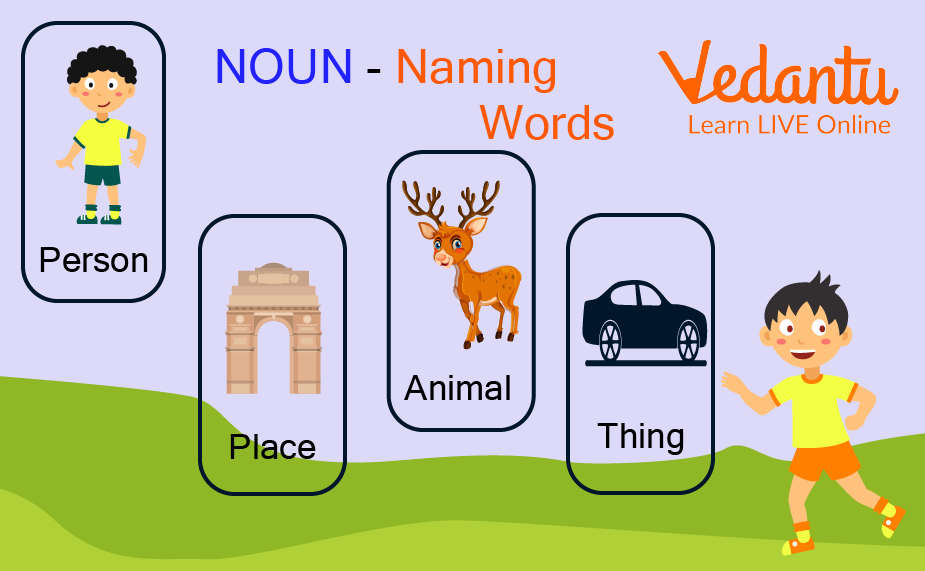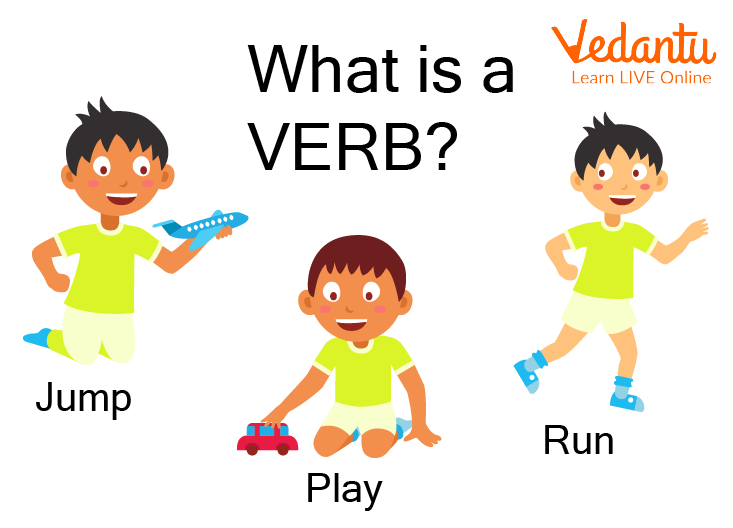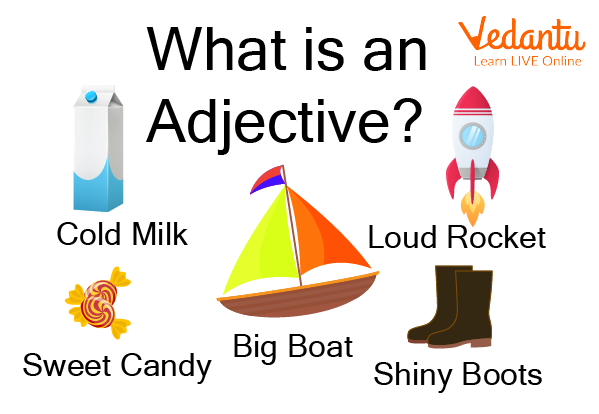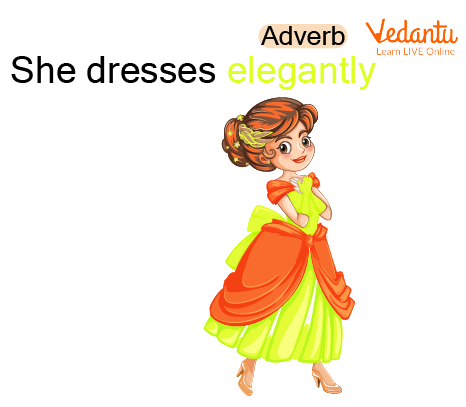




Must-Know Basic Words for Kids with Fun Examples
Imagine a child Alex, who chooses a book to read at his bedtime together with his father. After reading a few pages, Alex pauses, points to a word, and asks his father what the term "whale" means. The father explains that a whale is a giant fish, and he mentally adds "whale" to the list of terms he is surprised his youngster doesn't know.

Alex Reading a Book with his Dad
Kids learn new words by listening to what others convey. Furthermore, kids can learn new words by paying attention to them presented in books, articles, tunes and so on. English words for youngsters are huge as it assists them with imparting more power to their companions, instructors, and family and make them construct confidence while talking.
Basic English words used in Daily Life
So with that being said, some basic English words for kids are listed below.
List of Words Used as Nouns, Verbs, Adjectives and Adverbs
What are Word Types?
Let us briefly know the 4 most common word types and their role in the sentences that we are likely to come across. A list of words used as nouns, verbs, adjectives, and adverbs is given below.
1. Nouns are Naming Words
(place – beach, object – apple, person – Henry, animal – cat)

Depicting Examples of Nouns
2. Verbs are action/doing words (ate, swim, bake and sing)

Depicting Verb Examples
3. Adjectives are describing words (rainy, spotty, huge, green)

Depicting Adjective Examples
4. Adverbs are words that describe a verb (softly, quickly, carefully, happily)

Depicting Adverb Example
Now, let us get across some of the words that can be used in different word types.
The Use of Basic English Words in Sentences
Summary
So, in this article, we got to know how the Basic English words are significant for kids as it helps them to communicate more effectively and makes them build self-esteem while speaking. The list has a word which was so common as to account for 50% of speaking, reading, and writing of kids. Furthermost, there are bases of the word called word types which add meaning to words. There are 4 common types viz noun, verb adjective and adverb each of them plays a role in defining the job of a word.
FAQs on Basic Words For Kids: Learn and Practice
1. What are the first types of basic words a child should learn to build their vocabulary?
The first words a child typically learns are nouns, as they are easy to connect with objects and people in their daily life. Following that, they begin to learn verbs or action words. For example:
- Nouns: Words like 'mama', 'papa', 'ball', 'dog', 'milk', 'car'.
- Verbs: Simple action words like 'eat', 'sleep', 'go', 'run', 'play'.
2. How can parents introduce new English words to their children in a fun and engaging way?
Parents can make vocabulary building a fun part of daily life. Effective methods include:
- Reading aloud: Choose colourful picture books and point to objects while saying their names.
- Word games: Play games like 'I Spy' to help children identify objects and describe them.
- Singing songs and rhymes: Nursery rhymes and songs often repeat simple words, which aids memorisation.
- Labelling household items: Placing simple labels on objects like 'chair', 'table', or 'door' helps with word association.
3. What is the difference between an action word and a describing word for a child?
The main difference lies in what the word does in a sentence. An action word (verb) tells you what someone or something is doing, like 'jump', 'sing', or 'read'. A describing word (adjective) tells you more about a person, place, or thing, such as its colour, size, or shape. For example, in 'the red ball', 'red' is the describing word, while in 'the ball bounces', 'bounces' is the action word.
4. Why is it important for kids to understand the concept of word types like nouns and verbs early on?
Understanding word types like nouns and verbs is crucial because it forms the basic framework for building sentences. When a child knows that a noun is a 'thing' and a verb is an 'action', they can start combining them to express ideas (e.g., "Dog barks"). This knowledge moves them beyond just memorising words to understanding how language works, which is a fundamental step towards effective communication and reading comprehension.
5. How can a child combine basic words to start forming simple sentences?
A child can start forming sentences by combining a naming word (noun) with an action word (verb). The simplest sentence structure is Noun + Verb. For example:
- 'Bird sings.' (Bird is the noun, sings is the verb)
- 'Baby sleeps.' (Baby is the noun, sleeps is the verb)
6. What kind of vocabulary is typically expected for a student in Class 1 as per the NCERT syllabus for 2025-26?
As per the NCERT guidelines for 2025-26, a Class 1 student is expected to develop a vocabulary that includes:
- Sight words: Common words like 'the', 'is', 'a', 'and', 'you'.
- Familiar nouns: Words for animals, fruits, vegetables, and objects in their immediate environment.
- Action words: Simple verbs related to daily activities.
- Rhyming words: Words that help with phonetic awareness, like 'cat', 'hat', and 'bat'.
7. Beyond just making lists, what is a more effective long-term strategy for building a child's vocabulary?
A more effective long-term strategy is to create a 'word-rich' environment. This means moving beyond flashcards and lists and integrating language learning into everyday life. Encourage curiosity by answering their 'what is this?' questions in detail. Use new and interesting words in your own conversations with them, and explain what they mean. Learning words in the context of stories and real-life situations is far more powerful for retention and understanding than memorising isolated words.















